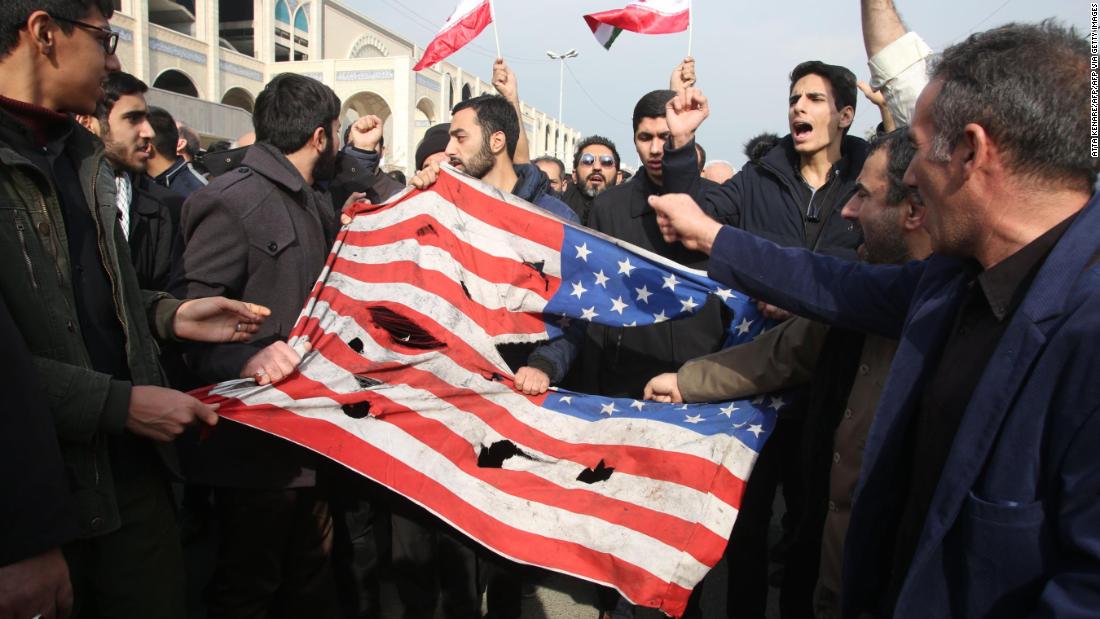[ad_1]
As tensions grew, the agreement known as the JCPOA began to fray at the edges.
President Emmanuel Macron of France tried to smooth the waters, proposing a $15 billion credit line for Iran in return for its full adherence to the JCPOA. He also welcomed Iranian Foreign Minister Mohammad Javad Zarif to the G7 meeting in August and tried to engineer a meeting between Trump and Iranian President Hassan Rouhani at the UN General assembly.
The message was simple — if we can’t sell our oil and gain the proceeds, we will try to ensure others can’t either.
At the same time, Iran chipped away at the JCPOA. Beginning in July last year, it withdrew every two months from some part of the agreement. It exceeded agreed limits to its stockpile of low-enriched uranium, and then began enriching uranium.
Essentially, Iran was responding to America’s ‘maximum pressure’ with ‘maximum resistance’ — but short of open war. The two adversaries seemed set on a “no-peace, no-war” course of attrition.
That remains the case after Soleimani’s killing, for all the anger and cries for revenge emanating from Tehran. The Iranians and their proxies will probably seek out targets of opportunity around the world. But — as the Iranian leadership has already stressed — they will bide their time.
At the same time, the prognosis for the JCPOA looks poor. At best it’s in intensive care; at worst it may struggle to survive the year.
There’s been an almost helpless tone to European calls for restraint in the aftermath of the US drone strikes. France pleaded for Iran to “quickly return to full compliance with its nuclear obligations and to refrain from further action to the contrary.”
On Saturday, France, Germany and China called on Iran to preserve the deal and to avoid any measure that would violate it, according to a statement from French Foreign Minister Jean-Yves Le Drian. Le Drian spoke to Germany’s Heiko Maas and China’s Wang Yi in separate phone calls.
There is scant chance of Iran listening in the current environment. The Europeans are nowhere near making up for the cost and dislocation caused by US sanctions, the $15 billion line of credit has gone nowhere and the Iranian economy is deep in recession. Further and deeper withdrawals from the JCPOA are likely in the months to come.
There is still plenty of strategic patience in Tehran. In light of the country’s deepening economic crisis and the sporadic flare-up of popular protests, the leadership may decide that upping the ante against the US is unaffordable, and full-scale war unsustainable.
By comparison, threatening to abandon the nuclear restraints so painstakingly negotiated by the Obama administration is almost risk and cost-free.
[ad_2]
Source link





